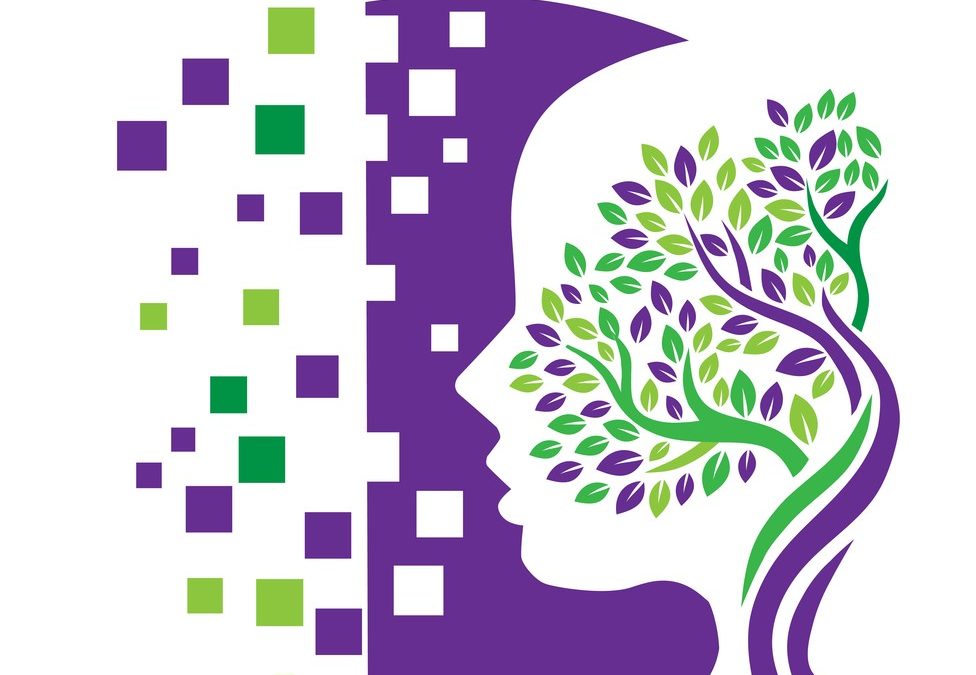Don’t overlook your mental health during the pandemic: Get ready for a focus on Mental Health and Depression in October to find help and resources.
During the pandemic, there’s a heavy focus on our physical health. Everywhere we turn, there’s information about masks, social distancing, disinfecting, and other steps to limit our risk of getting ill. But good health involves more than just our physical health – it encompasses our mental and emotional health, too. For many people, Covid-19 is kicking up a variety of mental health issues, such as stress, anxiety, loneliness, depression, and grief. Social isolation, the loss of normal routines, financial strain and family dynamics can also be factors that disrupt our mental health. If you are experiencing any of these things, recent surveys show that you aren’t alone:
- 53% of U.S. adults say their mental health has been negatively impacted due to worry and stress over the coronavirus, with 36% reporting difficulty sleeping or 32% reporting difficulty in eating. (Kaiser Family Health Foundation)
- The risk for depression among U.S. workers has risen by 102% due to the coronavirus pandemic, and by 305% for workers aged 20-39. (Human Resource Executive)
- More than 40 states reported increases in opioid-related deaths during the pandemic. (The American Medical Association)
Just as you care for your physical health, it’s equally important to care for your mental health, but psychological pain often goes unrecognized or takes a back seat to physical illness. While you shouldn’t wait to get help if you are in pain, there’s a special focus on mental health issues during Mental Illness Awareness Week (Oct. 4-10), which includes an anonymous test for National Depression Screening Day on October 8.
The importance of getting help for depression
One common mental health misconception is equating depression with sadness. Many of us use the word loosely to describe small daily frustrations and moods (I’m so depressed!), yet the reality is far different. Clinical depression often gets dismissed as a bad mood, blamed on external factors, or begrudgingly accepted as “just the way life is.” Thanks to myths and stigmas, we are often reluctant to seek appropriate help for our mental pain.
Sadness is a real human emotion and an appropriate response to difficult life events. It is generally temporary. Depression in the clinical sense is a more serious illness that can’t be willed away. The CDC estimates that one in 10 U.S. adults suffers from depression. Untreated depression is the number one cause of suicide. Depression is treatable and treatment is quite effective. But people who suffer from depression often are immobilized and need intervention by a spouse, a friend, or family member to get that help.
One of the primary barriers to people getting early treatment of depression is knowing and recognizing the signs of depression, which often go unnoticed. It’s important to be aware of the symptoms or signs that help is needed — in ourselves and in others . These often include:
- Feeling sad or “empty”
- Feeling hopeless, irritable, anxious, or guilty
- Loss of interest in favorite activities
- Feeling very tired
- Inability to concentrate
- Inability to sleep, or sleeping too much
- Overeating, or not eating at all
- Thoughts of suicide or attempts of suicide.
Depression and other mental health conditions don’t have to be unbearable if you reach out to get help. If you or a family member is suffering from depression or any other mental health issue, why not get help?
If you are a Member of ESI EAP, learn more about the excellent counseling services available to you and your family 24 hours a day, 7 days a week, 365 days a year. In addition to telephonic in-the-moment counseling, you can access telehealth and video and counseling, coaching and training programs to help you address any underlying issues causing stress or problems, and a comprehensive self-help center with 25,000+ resources.
If you are not a member of ESI EAP, here are other resources that may help.
- Mental Health America – The nation’s leading community-based nonprofit dedicated to addressing the needs of those living with mental illness and to promoting the overall mental health of all Americans. Access a wide variety of education and help tools including DIY tools and Mental Health Screenings.
- National Suicide Prevention Lifeline – The Lifeline provides 24/7, free and confidential support for people in distress, prevention and crisis resources for you or your loved ones, and best practices for professionals. 1-800-273-8255
- Right Direction – When you feel lost, life can seem overwhelming. But where there’s hope, support, and resources, you can find your way. This site from the American Psychiatric Association Foundation offers tools and resources for both employees and employers.
- HelpGuide – Independent, not-for-profit site with a mission of providing empowering, evidence-based information you can use to help yourself and your loved ones improve mental health and make healthy changes.

